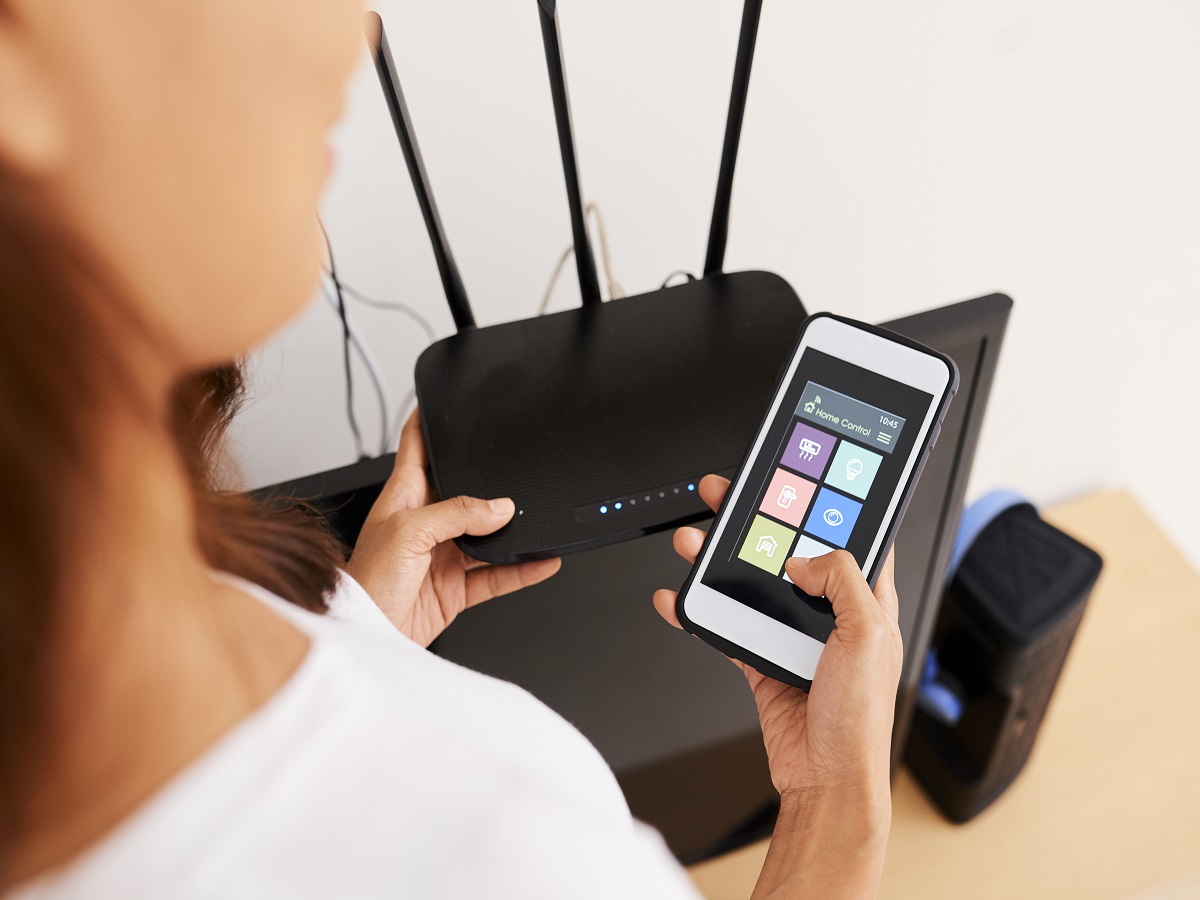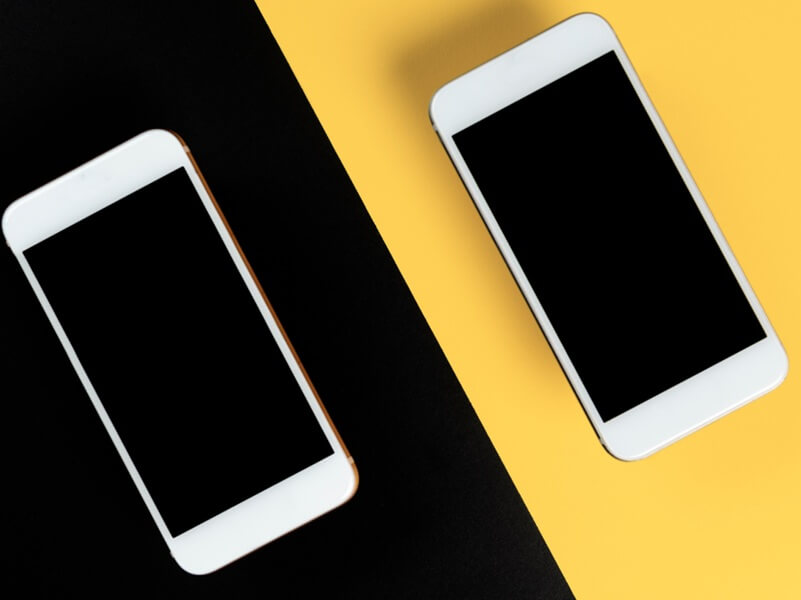Technology has changed the way we communicate in the workplace in many ways. The current pandemic has forced companies and their employees to embrace the virtual office, with all its attendant pros and cons. And if there’s one thing crucial to a successful virtual office, it’s communication technologies and processes.
What is wifi calling?
Wifi calling is everywhere, even if you don’t think you’ve ever used it. Skype or Facetime are great examples of consumer apps that enable wifi calling. There are also many business-focused systems that utilize wifi calling for low-cost and seamless communication.
Wifi calling is exactly what it says on the tin – using wifi networks to carry your calls to other people instead of a traditional phone network (landlines, cell towers). It means wifi calling is a boon when you’re in low coverage areas or places where carrier networks don’t work quite well (basements, elevators, rural areas, etc.)
How to make wifi calls
From the end user’s perspective, a wifi call is no different from a regular call. You dial the number you want, wait for the person to answer, and start a conversation. The main difference lies behind the screen. The call uses your wifi network connection to route the call instead of your carrier’s network.
In most cases, you can continue using the usual call features like 3-way calls, turning on the speakerphone, muting yourself, etc. It’s a great alternative when you have spotty cell phone coverage but are connected to a strong wifi network.
What if your wifi signal is not very strong? Enabling wifi calling does not mean every call goes through the wifi network. Most phones will look for the strongest signal when initiating a call and use that network. Sometimes it may be your carrier’s cell towers, at other times it will be your wifi network. So turning on this feature just adds another option, it does not default to using wifi.
What phones support wifi calling?
Most modern smartphones using the iOS or Android platforms support wifi calling in terms of hardware. You might also have to check if your carrier offers it as a feature. Typically there are no extra charges to use wifi calling, as the calls use your wifi signal.
If wifi call support is important to you, it’s a good idea to check your carrier’s website and see if the model you have is supported. Most carriers support wifi calling, even if they refer to it by some other name.
How to enable or disable wifi calling
Enabling or disabling this feature varies by phone model but you can often find it in the settings area under connections, calling, or networks. It might take a bit of digging but there will be a setting to turn on wifi calling. You don’t have to restart your phone or call the provider to enable it.
The difference between VoIP and wifi calling
The term wifi calling was practically unknown a few years ago but today, most phone models and carriers support it. The term itself is new but the technology powering it should be familiar to managers and telecommunication experts – VoIP. Yes, wifi calling uses VoIP technology to route a call from your mobile phone through a wifi network instead of carrier networks.
So why does it need a separate name? That’s because wifi calling was developed by carriers as an alternative to popular consumer VoIP apps like Skype. Almost any business or consumer VoIP call needs a separate app installed on your phone or laptop. In order to be competitive, carriers developed wifi calling which works automatically on your phone.
So when people talk about VoIP calls, they’re referring to a platform or separate application on your device. But when they refer to wifi calling, it’s the carrier-branded feature that works automatically when you place a call to someone.
Advantages of wifi calling
There are many benefits to using wifi calling for personal or business use.
Improves call quality
When you make a call with your mobile device, the call quality depends on the strength of the cell signal. If the coverage in your area is spotty, the call is more likely to drop or sounds bad. Wifi calling can improve the call quality, especially if you have a strong wifi signal compared to the carrier’s coverage.
No app download needed
Unlike most consumer VoIP applications, you don’t need to download yet another app on your phone to use wifi calling. All you need to do is enable the feature and make calls as usual.
Does not use call minutes
As calls use your wifi connection, it does not use your calling plan minutes. Although some carriers may count it towards your monthly limit. It’s always better to check with your provider unless you have an unlimited calling plan.
International calls are cheaper
Although carriers limit international calls using wifi calling, most calls within and to the United States are free. It means you don’t have to worry about racking up the charges when you travel or communicate with business partners.
No additional charges or fees
Wifi calling does not incur any additional charges or premium features. You don’t even have to contact your provider to enable it. It’s a simple setting you can find in your phone’s settings app.
Uses your current phone number
There is no need to change your phone number to use wifi calling. Since there is no separate app to install, you don’t need to create another login and password. It eliminates the security risk of forgetting your password or having to change a setting for each call you make.
Great alternative for spotty coverage
How often have you found yourself in an area where the cell signal is weak or non-existent? It’s especially useful for users who travel for work to rural or far-flung areas. If you mainly make calls from home, most calls may go through the wifi network as you’re likely to be within 50-100 feet from the router.
Preserve battery
What happens when you’re in an area with weak cellphone coverage? Your phone expends a lot of battery trying to connect to the best signal and network. Enabling wifi calling minimizes battery drain so you don’t run out right when you need it.
The disadvantages of wifi calling
Restrictions on international calls
Wifi calling can make some calls free or cheaper than average but there are still many restrictions on international calls. Most international calls cannot be completed using just wifi calling, so carriers do still charge for them. It is often less expensive than without wifi calling but it is still something you need to consider if you’re planning to rely on wifi calling.
Weak wifi signal
While wifi calling is a great alternative for when you have weak coverage, it’s not always superior to a regular call. The best call quality comes when you use wifi calling from your home. But when you’re using public wifi networks like at a cafe or airport, you might not have the bandwidth to support calls. Think of all the people trying to connect and using data on the network, so don’t be surprised if your call drops.
Relying on wifi calling in such a situation can spell disaster especially if you’re making business calls. Not only will it look unprofessional but you also lose precious meeting minutes just trying to reconnect and continue the conversation.
Public wifi hotspots
Although public wifi hotspots have increased over the last decade, they’re still not quite universal. Even if you do manage to connect to one, the speed and bandwidth may not support wifi calling. Additionally using public wifi hotspots presents security risks for business calls.
Not all models/carriers support wifi calling
Support for wifi calling is growing but many older phone models do not support it. Major carrier networks support it but smaller regional carriers may not.
Is wifi calling suitable for business use?
Despite the benefits of wifi calling, VoIP is still the better option for businesses. Why?
With wifi calling, you don’t have any guarantee of voice quality, security, or overall performance. Your employees have to rely on their carriers to complete calls. If the feature stops working or a call does not connect, you don’t have any technical support options.
Another issue is with the phone number. Wifi calling uses the employee’s phone number, not the one you want them to use for business purposes. If your staff is contacting customers, you would prefer them to use the business number. VoIP apps allow users to make calls from their personal devices using the correct company number.
In addition, wifi calling lacks several features that are part of the standard VoIP service such as visual voicemail, call forwarding, multi-device ring, video conferencing, etc.
Even for a small business, the benefits of business-grade VoIP service cannot be overestimated. Wifi calling is often perfect for personal calls or the occasional trip but for a consistent experience stick with VoIP service for your business.




